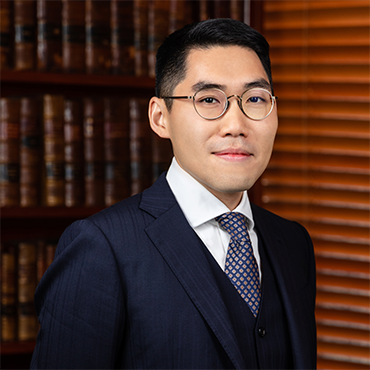Re Ashit Sud and Re Adoniss Ltd [2022] 4 HKC 575, [2022] HKCFI 1269 (Jeff Yau)
Jeff Yau represented the respondents in Re Ashit Sud and Re Adoniss Ltd [2022] 4 HKC 575, [2022] HKCFI 1269.
After statutory demands for the sum of USD 38,462,426.76 were served and remained unpaid, petitions were taken out (together, ‘the Petitions’) for the winding up of Adoniss Limited (‘the Company’) and for the bankruptcy of its director, Ashit Sud (‘the Debtor’). The Company and the Debtor (collectively ‘the respondents’) opposed the petitions which were presented by Union Bank of India (‘UBI’) on the grounds that negotiations were underway with UBI and other creditors (‘the Lenders’) for the repayment of the outstanding debts and the Company had offered a one-time settlement proposal (‘OTS Proposal’) and a Hailey Road property to be used as security pending sale. Amongst the respondents’ arguments were that UBI was estopped and/or that the rejection of the OTS Proposal was unreasonable and s 178(1)(a)(ii) of the (hk) Companies (Winding up and Miscellaneous Provisions) Ordinance (Cap 32) (‘CWUMPO’) and s 6D (3) of the (hk) Bankruptcy Ordinance (Cap 6) (‘BO’) had not been satisfied. It was also contended that ss 178(1)(a) and (c) of the CWUMPO and s 9 of the BO had not been satisfied due to overstatements in the statutory demand on the Company and in the bankruptcy petition (‘HCB Petition’). UBI had appropriated sale proceeds from a third-party property towards the Company’s indebtedness a week before the hearing for the HCB Petition.
Held, making a winding up order in respect of the Company and adjudging the Debtor as bankrupt:(1) UBI’s invitations/requests to the respondents to improve on their offer during the negotiations did not implicitly confirm parties’ intention that the old debt would not be enforced. The Lenders were free to terminate discussions at any stage since there had been no acceptance of the OTS Proposal. Any detriment resulting from further steps to sell the Hailey Road property notwithstanding statutory demands and the presentation of the Petitions were entirely self-induced and did not remotely suffice to find any detriment or claim to support an estoppel defence (paras 29, 32-34).
(2) The test for ‘reasonable satisfaction’ under s 178(1)(a)(ii) of the CWUMPO was the same as that for s 6D(3) of the BO. The court had to be satisfied that no reasonable hypothetical creditor in the petitioner’s position would have refused the offer and there must have been full and frank disclosure of the financial circumstances. The test was objective and that position was to be looked at the date of the hearing. Where in this case, the Debtor had made no disclosure of his financial circumstances and there was no sworn evidence from the Company as to its financial condition, the criticisms of the OTS Proposal were entirely justified and valid. Where the Company was insolvent and unable to pay its debts, it was the creditors who had a real interest in the Company and they could decide whether it was in their interest to have the Company wound up. It was not for the Company to assert otherwise. Applying the principles, it could not be said to be unreasonable for the OTS Proposal to be rejected. Re Ho Sik Tung Terry[2012] 5 HKLRD 777 ; [2012] HKCU 2231; Re Chiu Margaret (Debtor)[2020] 5 HKC 453 ; [2020] HKCFI 617; Synergy Lighting Ltd v HSBC[2020] HKCFI 2490 ; [2020] HKCU 3377 and Re Zhaoheng Hydropower (Hong Kong) Ltd [2021] HKCFI 1434 ; [2021] HKCU 2342 applied. Re a Debtor (No 32 of 1993) [1995] 1 All ER 628 explained. Re Cheung Ka Lun Grand (HCB 17553/2002, Kwan J, 23 December 2002, unreported) and Re Garwood [2012] Lexis Citation 130 considered (paras 36, 43-44 & 49-51).
(3) Overstating the amount due in the statutory demand did not ipso factor invalidate the statutory demand or render the company involved any less solvent. A statutory demand was merely a means of proof of insolvency. When a debt which was not substantially disputed remained unpaid, an inference could be drawn that it was unable to pay its debt within s 178(1) of the CWUMPO. If a company contended that the statutory demand had been overstated, the correct procedure to avoid the statutory presumption of insolvency was to comply with the demand as to the amount which was not bona fide disputed and then contest the remainder. Cardiff Preserved Coal and Coke Co v Norton(1867) LR2 Ch App 405; Re Newman Air Charter Pty Ltd (1991) 5 WAR 365, In re a Debtor (No 490-SD-1991) [1992] 1 WLR 507; Re AuraSound Speakers Limited [2004] 3 HKLRD 502 ; [2004] HKCU 885 and Re SEC (Hong Kong) Ltd [2014] HKCU 733, (HCCW 215/2013, Ng J, 21 March 2014, unreported) applied. Processed Sand Pty Ltd v Thiess Contractors Pty Ltd (1983) 78 CLR 956 doubted (paras 56, 57 & 60).
(4) Section 9 of the BO was satisfied notwithstanding overstatement of the debt in the HCB Petition. It was relevant to note that the HCB Petition was based on a failure to comply with a statutory demand and the amount of debt stated in the statutory demand that was served on the Debtor was correct in every respect then. This was not a case where the statutory demand itself was wrong. Where substantial indebtedness was shown, notwithstanding overstatement of the subject debt, no injustice could be seen to be done to the Debtor who had not made any repayment. Re Kwok Chok Yee [2000] 2 HKC 543; Bright Islands Corporation v Joachim Chao, appointed representative of the estate of Chao Sze Bang Frank, deceased [2002] 2 HKLRD 97 ; [2002] HKCU 278; and Re Lo Kwai Ying Louisa [2017] HKCU 880, (HCB 3145/2015, Lok J, 5 April 2017, unreported) applied. Lim Por Yen v Lam Kuen Leung [1994] 2 HKLR 248 ; [1994] HKCU 334 distinguished (paras 65, 68).
[The above is excerpted from the headnote to the report in HKC.]


